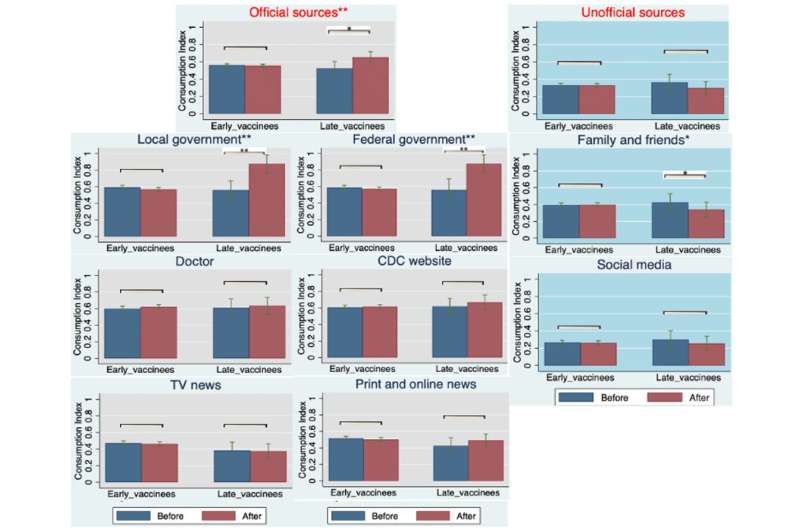
With updated COVID-19 boosters being recommended to provide increased protection against the circulating omicron variant, a new paper by University of Hawaiʻi at Mānoa and Waiʻanae Coast Comprehensive Health Center (WCCHC) researchers is shedding light on who is getting booster shots in Hawaiʻi, and how trust and consumption of different information sources affect that decision.
The paper was published August 31, in Vaccines.
Results of the study show individuals vaccinated within two months of eligibility tended to have more years of schooling, with greater trust in and consumption of official sources of COVID-19 information, in comparison to those who waited three to six months, or those who remained unvaccinated at six months post-eligibility. Most or 70% of those individuals who were vaccinated within two months of eligibility took the booster shot, compared to only 30.5% of those who waited three to six months, with the latter group gaining trust and consumption of official information after four months.
“This study shows that social factors, including education and individual-level degree of trust in sources of COVID-19 information, played a large part in whether someone decided to get a booster shot,” said Ruben Juarez, an economics professor in UH Mānoa’s College of Social Sciences and HMSA Endowed Professor of Health Economics at UHERO. “COVID-19 booster hesitancy remains an issue in our community, and understanding what contributes to this has significant implications to ongoing public health responses as we enter a new phase in the pandemic.”
Researchers collaborate to survey adults
Working in collaboration with the Pacific Alliance Against COVID-19, UH researchers surveyed almost 1,600 Hawaiʻi adults enrolled in the group’s COVID-19 testing program. Study participants completed standardized surveys from January to February 2021 on demographics, vaccination status and trust in sources of COVID-19 information during the delta wave. Of those, about 800 individuals or 50.3% completed a follow-up survey from January to February 2022 during the omicron wave.
“Results from our study reinforces the need to nurture trust and promote health literacy in our community, which our model predicts will improve vaccine uptake, including boosters. This is especially important given new COVID-19 vaccines recently announced by the FDA that target the Omicron variant that is currently circulating in our population,” said Alika Maunakea, John A. Burns School of Medicine (JABSOM) associate professor.
May Okihiro, JABSOM associate professor and pediatrician at WCCHC, added that “this data provides critical information for the Department of Health and our community of health centers to act on the development of effective strategies that include vaccination to help us emerge out of this pandemic.”
University of Hawaii at Manoa

